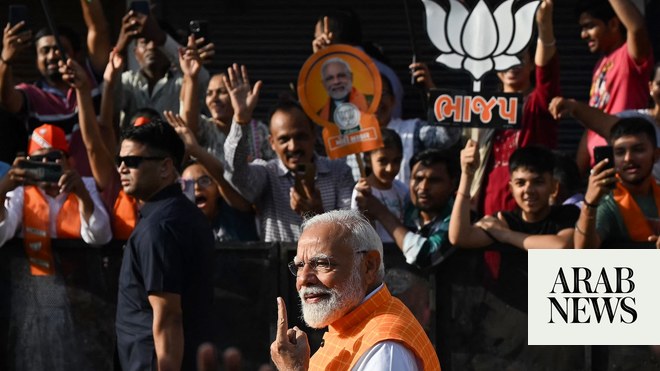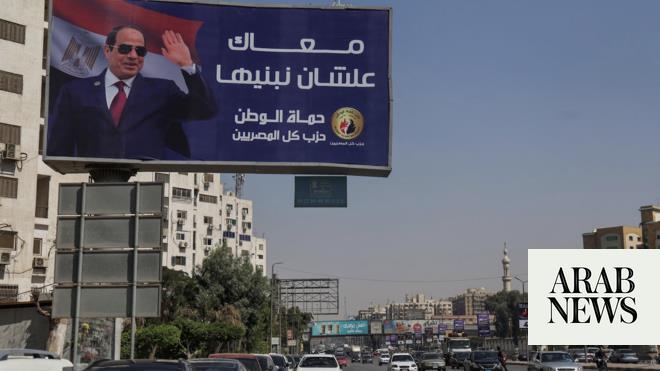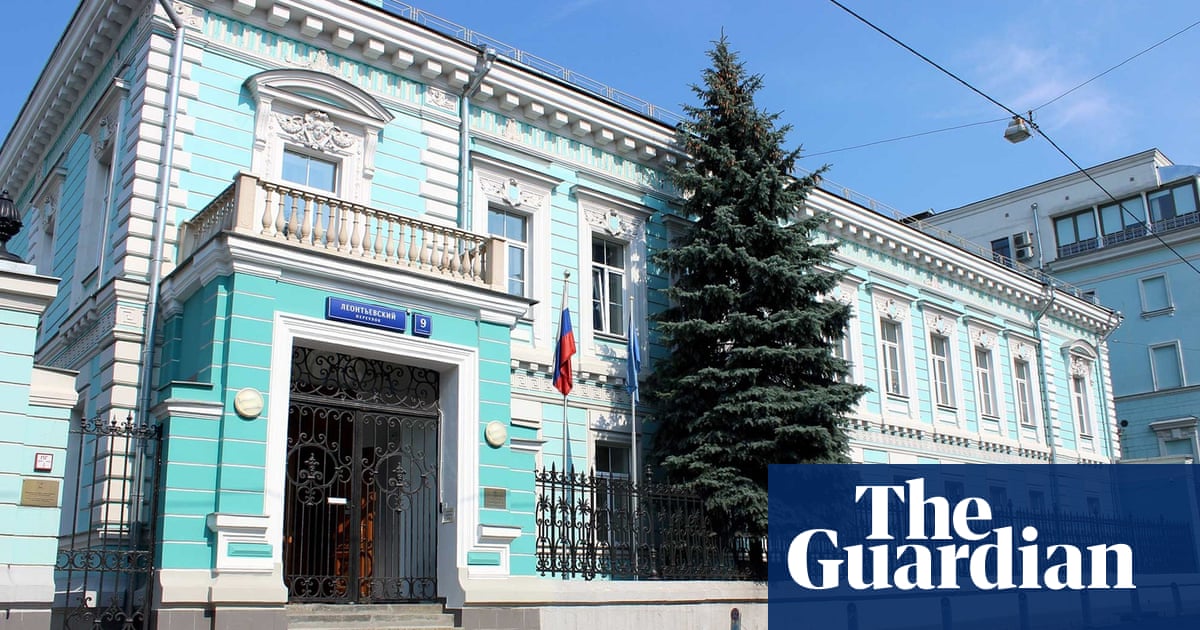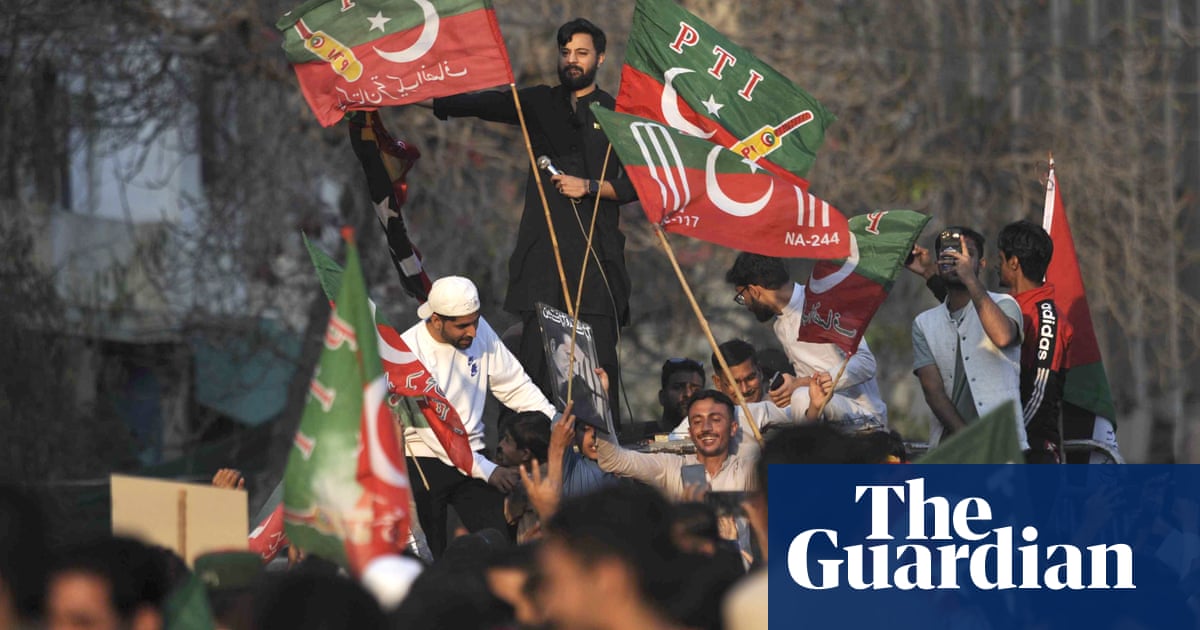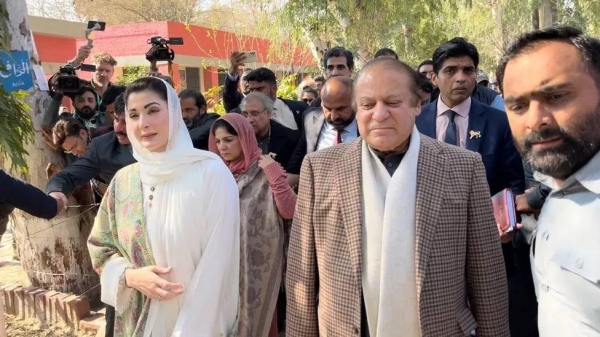
The military presence is just the latest controversy in a bitter campaign season that has seen accusations of “pre-poll rigging,” the expansion of hard-line religious parties, and a string of bloody militant attacks that have killed more than 180 people
A total of 105.6 million registered voters will exercise their right to vote on Wednesday in all four provinces of the country
ISLAMABAD: Pakistan’s military fanned out across the country ahead of Wednesday’s election, deploying hundreds of thousands of troops to oversee polling stations in a short but acrimonious contest that analysts say is still “up for grabs.”
Armed soldiers watched closely as election officials in the capital Islamabad Tuesday distributed ballot boxes and voting materials for polling stations across the city. The military has stationed over 370,000 personnel nationwide to ensure the vote goes smoothly — the largest such deployment in Pakistan’s history on an election day. It has said the soldiers will work with local law enforcement to ensure “a safe and secure environment” for voting.
An additional 450,000 police were also assigned to provide security, according to election officials. The mammoth deployment coupled with a recent decision by election authorities to grant military officers broad powers inside polling centers has stirred fears of possible manipulation.
The military presence is just the latest controversy in a bitter campaign season that has seen accusations of “pre-poll rigging,” the expansion of hard-line religious parties, and a string of bloody militant attacks that have killed more than 180 people, including three candidates.
At a distribution center in Lahore, election workers complained of general discord and delays in the delivery of ballot boxes.
A day before the polls, voters were largely split in Lahore, the capital of Punjab — Pakistan’s most populous province and long a Pakistan Muslim League - Nawaz (PML-N) stronghold that is being fiercely challenged by Khan’s Pakistan Tehreek-e-Insaaf (PTI).
“I am supporting Imran Khan because he is the best choice for Pakistan. We should give him a chance,” said Muhammad Wasim, 32, pointing to what he described as the success Khan’s party has had in governing northwestern Khyber-Pakhtunkhwa province.
Others cited the improvements in infrastructure under the PML-N in the sprawling city in the east of the country, vowing to stick by the party hit by several corruption convictions ahead of the election.
“They have served the masses, they have put an end to... (power cuts) and given us better facilities including roads, transport and education,” said shopkeeper Muhammad Nawaz, 45.
Political parties held their final rallies Monday night — before campaigning was suspended — in a last-ditch attempt to energize voters.
“I am giving this task to all of you: Wake up early on the 25th and cast your vote,” Khan told thousands of PTI faithful in Lahore.
In southern Punjab, PML-N leader Shahbaz Sharif — the former premier’s brother — said victory was “certain.” “Despite all the odds, PML-N is winning the July 25 polls,” he was quoted as saying by Pakistani media.
Imran addressed four rallies in Lahore and Shahbaz concluded his party’s election campaign by addressing a public gathering in Dera Ghazi Khan, Punjab. All recent polls and surveys have predicted a tough competition at the national level between the PTI and PML-N, though leadership of both these parties have predicted their victory in the elections during their recent addresses to public gatherings.
The PTI chairman addressed 61 public gatherings, followed by Pakistan People’s Party (PPP) Chairman Bilawal Bhutto with 44 and Shahbaz with 30 during the election campaign. None of them, however, visited Balochistan for the canvassing owing to security concerns.
According to the Election Commission of Pakistan (ECP), a total of 3,674 candidates will contest 272 general seats of the National Assembly, while 8,400 are running for 577 general seats of the four provincial assemblies.
Pakistan’s National Assembly is a democratically elected body comprising a total of 342 members, of which 272 are directly elected, 60 seats are reserved for women and 10 for religious minorities.
A total of 105.6 million registered voters will exercise their right to vote on Wednesday in all four provinces of the country. The ECP has set up 85,307 polling stations across the country including 23,424 male, 21,707 female, 40,133 combined and 43 improvised ones to ensure a better turnout on the polling day.
Prof. Tahir Malik, political analyst and academic, said that traditional enthusiasm and passion for the election campaign was marred by deteriorating law and order in the country as more than 200 innocents, including three election candidates, had been killed in separate suicide attacks.
“The ball is now in the court of the people. They must come out in large numbers to elect honest and truthful candidates,” he told Arab News.
Malik said Pakistan can witness true democracy only if all the institutions work in their predefined constitutional limits and “the public is allowed to elect their candidates through ballot without any fear.”




